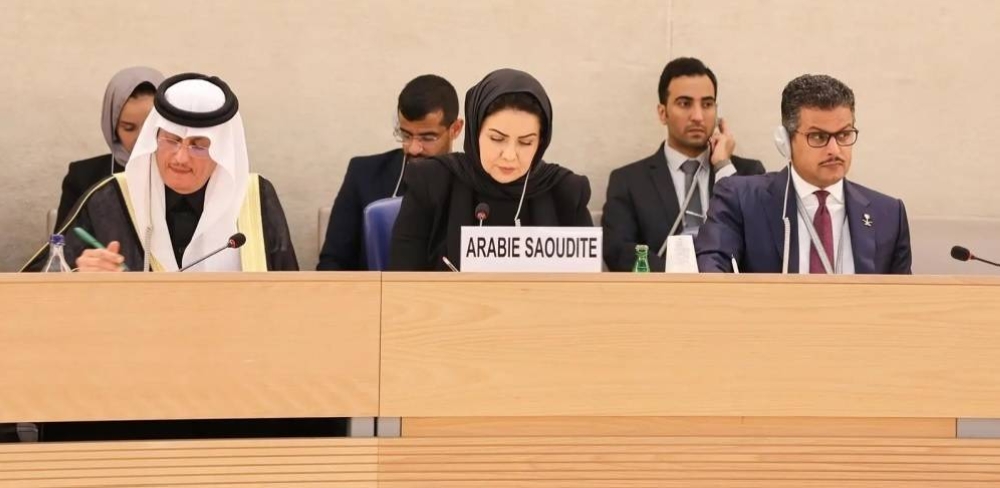Saudi Arabia has recently received a review of its human rights records during the fourth cycle of the Universal Periodic Review on 22 January 2024. In this instance, it has received 35 recommendations on using the death penalty. Before this, in 2018, it had already received various recommendations on reforming the use of the death penalty for the gravest crimes or abolishing it. By that time, Prince Bin Salman and other officials repeatedly declared that Saudi Arabia intended to restrict the death penalty for non-lethal offences and to abolish it for children. However, in 2024, executions for drug-related crimes and children are still ongoing.
Among the 35 recommendations of the latest UPR, which generally recommends emitting a moratorium in light of abolishing the death penalty, there are specific ones that deal with substantive issues of the Saudi criminal law system. To mention some, Argentina recommends abolishing the death sentencing of minors, Belgium recommends using the death penalty only for the most severe crimes, and Germany recommends restricting the scope of the terrorist law. In this sense, ADHRB acknowledges that critical issues in the use of the death penalty in Saudi Arabia depend on the flaws of the Saudi Criminal Law system and the lack of ratification of international human rights instruments.
Since 2018, at least 693 individuals have been executed, including charges for children and non-lethal offences. In this sense, there has been a failure to implement the recommendations from the last UPR. The issue could be evidenced by the failure to implement recommendations requesting more transparency, the continued misuse of the counterterrorism legislation, and the Juvenile Law’s unclarity.
In fact, in August 2018 Saudi Arabia promulgated the Juvenile Law that governs the treatment of children in the criminal system. The law provides that if a child commits an act punishable by death, the punishment would be substituted with a prison term of no more than ten years. However, Article 16 states that the law ‘’ shall not prejudice the prescribed provisions on hudud and qisas’’. With this provision, a child committing a mandatory or retributive offence would still be subject to the death penalty. Regarding the infliction of the death penalty against minors, REPRIEVE has calculated at least 15 cases between 2012 and 2022. Currently, nine charges of execution against children have been upheld by the Court of Appeal, posing them at imminent risk of execution in the instance the Supreme Court confirms the verdict.
Moving to other substantive issues of the Saudi criminal system, there are broad terrorism laws and the infliction of the death penalty for non-lethal charges. For these cases, the death penalty was applied in regular courts and the Specialized Criminal Courts (SCC). Officially, the death penalty for non-lethal charges is prohibited under the Arab Charter, of which Saudi Arabia is part. Arguably, customary law also prohibits the resort to the death penalty for non-gravest crimes. Nonetheless, in Saudi Arabia, the number of executions for non-lethal offences represented 66%. To mention one of the gravest cases, on 12 March 2022, in a mass trial, 58 men non-lethal charges. In addition, alarming information has arrived from the terrorist offences in the Kingdom. Among these, a notorious one has been the charge of the capital offence against Nasser al-Ghamdi for his activity on Twitter.
To conclude, the overall situation about the death penalty in Saudi Arabia is alarming. The despicable news of 2023, along with the false promises of the Crown, does not suggest positive developments for the next UPR cycle. This can be affirmed in the eye of substantive issues in the criminal system, the secrecy in emitting real numbers, and the questionable explanation for the charges. Considering this, the efforts to improve the functioning of the Saudi criminal system depend on different fronts. For the next UPR, ADHRB deems that Saudi Arabia shall codify its Penal Code and amend the actual laws, including the one directed to children and non-lethal charges. In addition, it requests the criminal system to provide transparent data over the country. Also, it encourages the countries participating in the UPR review to make tailored recommendations on issues connected with the death penalty in Saudi Arabia. This strategy helps to keep Saudi Arabia accountable for its substantive matters. Finally, it reiterates the importance of monitoring the death penalty status through civil society organisations.





